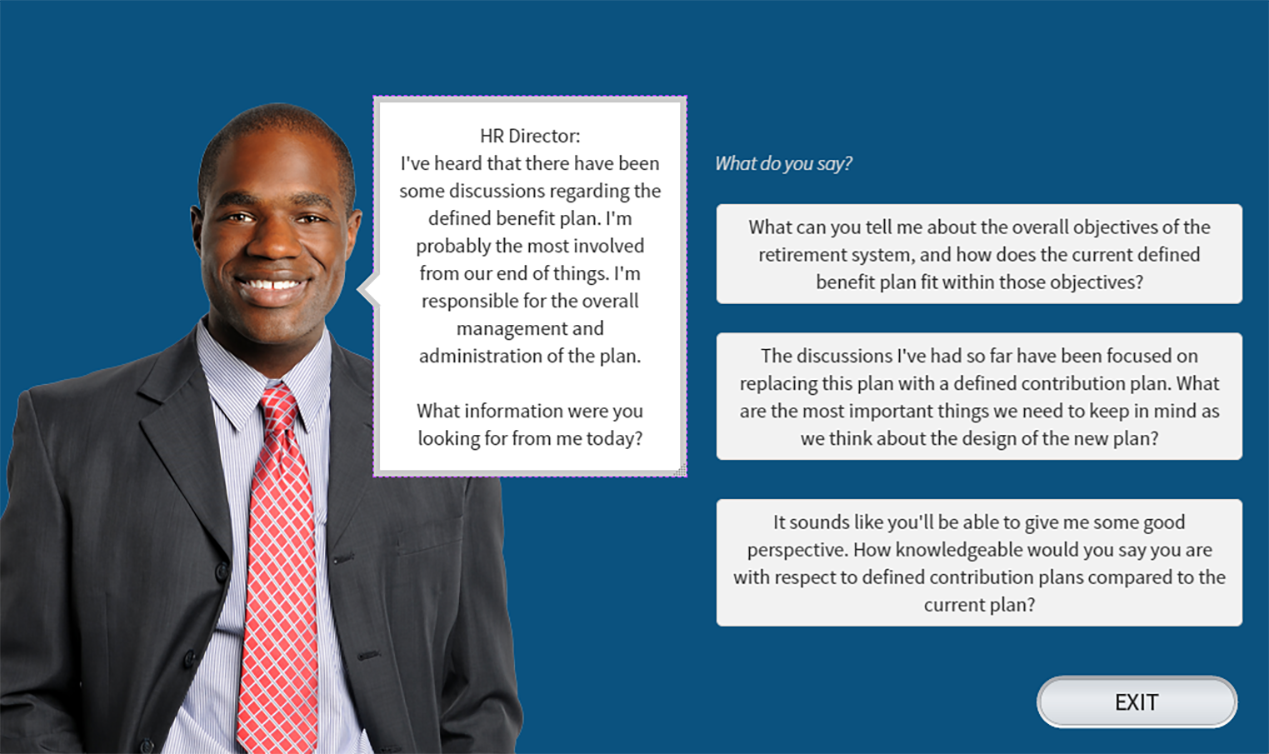Innovations in e-Learning
New offerings include everything from interactive scenarios to real-time mobile interactivity
February/March 2020Photo: iStock.com/Ridofranz
Since introducing e-Learning to its education pathways in 2006, the Society of Actuaries (SOA) has continually updated its offerings to stay current with technical changes in the field. More recently, the SOA has begun to enhance its modules to meet the evolving needs of candidates and to address their thoughtful feedback.
Release of an Enhanced FAP
We released the first part of an enhanced version of our Fundamentals of Actuarial Practice (FAP) course in January 2020. Remaining modules will be released in March and a new Final Assessment in June. FAP, typically taken toward the end of the ASA pathway, comprises eight modules that address foundational concepts and commonly practiced techniques, and introduces more specialized methods across the breadth of practice areas in the actuarial profession.
The primary motivation for the FAP enhancement was to broaden the international coverage of the modules. New content considers risk management with a global perspective, introduces differences between solvency regulations and accounting standards and more, including review questions and case studies. Each module has undergone a process of careful review to streamline readings and reduce redundancy across readings. A substantial effort has been made to update readings to reflect current practice, and a second edition of the Understanding Actuarial Practice textbook is being planned.
Beyond the material itself, we also are modernizing our approach to e-Learning, responding to candidate feedback and incorporating new features that support a more impactful and engaging learning experience.
Interactive Scenarios
Where case studies afford opportunities for candidates to think about real-world problems, interactive scenarios challenge candidates to take action. Candidates step through short conversations with clients, conduct analyses and offer solutions. Different choices lead to different paths with varying results that candidates will need to address. One could envision the interactive scenarios as “choose your own adventure” stories with themes relating to the actuarial practice.
Real-time Mobile Interactivity
Through the new Learning Companion platform, candidates can join cohorts of their peers, all working through the same module in FAP, and communicate in real time on their mobile devices. Knowing who might be online at any time, candidates can reach out to each other with questions about the content, respond to each other’s comments or just share a random thought.
Assessment Structure and Feedback
It is said that the best way to eat an elephant is one bite at a time. In that vein, the Interim Assessment will no longer be taken all at once after completing the first five FAP modules. Rather, candidates will submit an End-of-Module Assessment after completing each of the first seven modules. We have also upgraded our systems and processes to provide candidates with feedback, so candidates will be able to improve their skills as they progress through the program.
New Approach for FSAs to Improve Their Programming Skills
As we enhance FAP, we have revisited our FSA-level materials as part of the curriculum changes that started in 2018. We are introducing more powerful learning experiences that help our members build skills in key areas. For example, multiple modules in the Quantitative Finance and Investment (QFI) Track incorporate skill-building in R programming. The Financial Modeling Module has been reworked to incorporate multiple opportunities to run R code and interpret the results. The new Scenario Modeling Module is built entirely around a coherent sequence of programming activities that explicitly build on one another, culminating in an end-of-module exercise that helps candidates consolidate their learning. “Seriously, a textbook and a blank-sheet-of-paper exam is no way to truly understand interest rate models,” says Charlie Ford, FSA, MAAA, general officer for the QFI Track Curriculum.
More Innovations Coming Soon
We plan to continue to expand on the enhancements to FAP and incorporate more current techniques. For example, the technology that supports real-time interactivity also enables greater personalization of the learning experience; through the Learning Companion, candidates and members will have opportunities to not only interact with each other, but also interact with individualized content that pertains to their specific questions and needs. With the appropriate application of these tools, candidates will be able to more successfully reinforce their own learning, ultimately leading to more efficient mastery of content and more successful application of their knowledge.
We look forward to introducing new capabilities and hearing feedback from our current and future members.
Copyright © 2020 by the Society of Actuaries, Chicago, Illinois.


